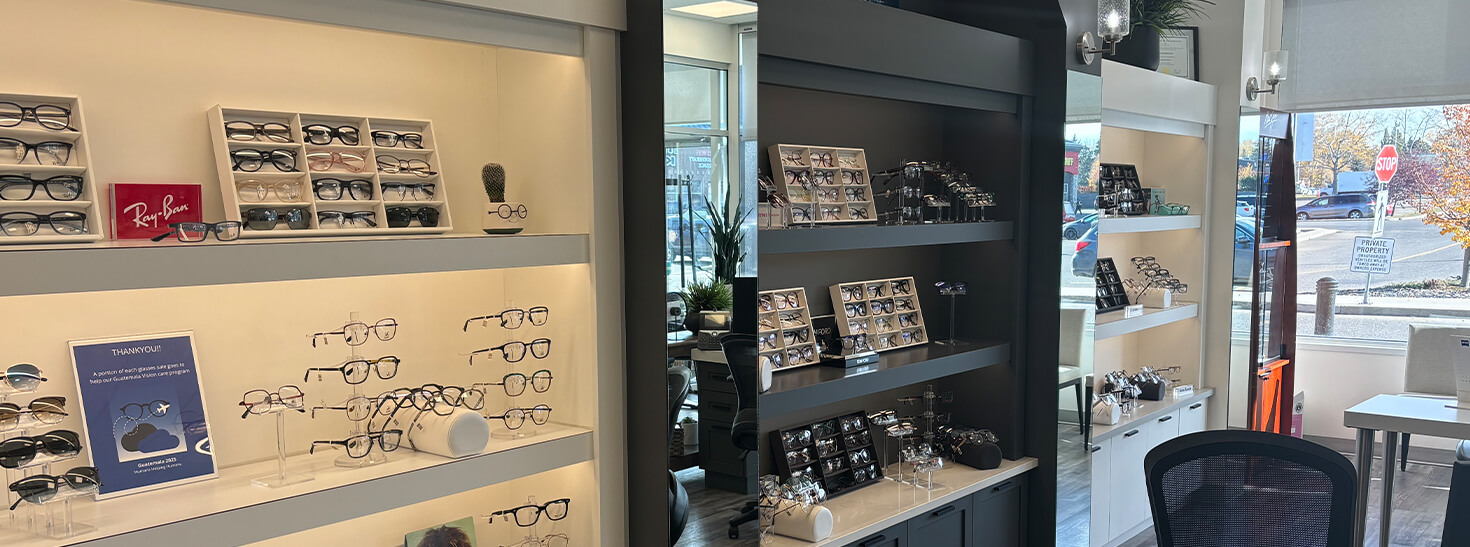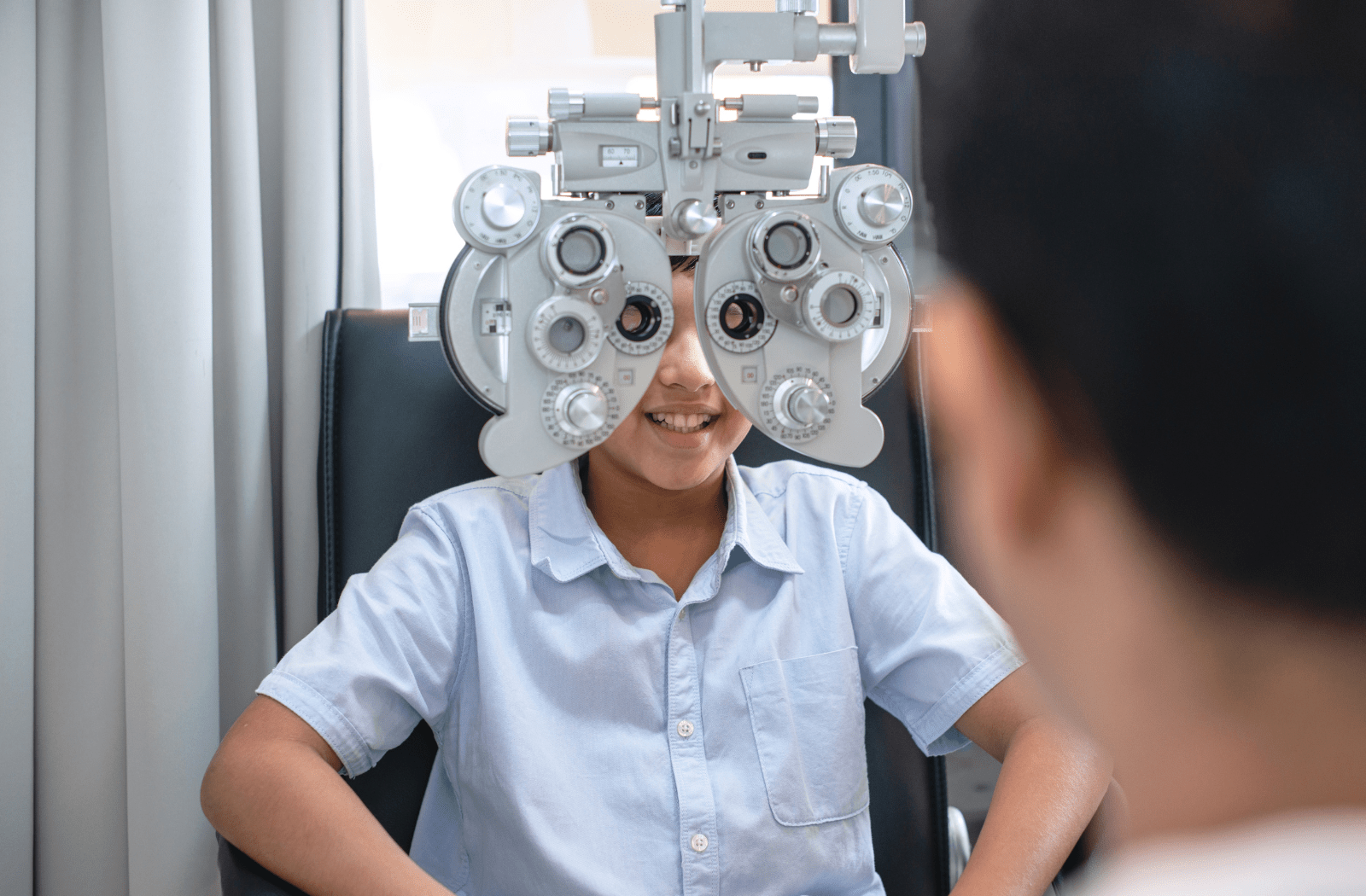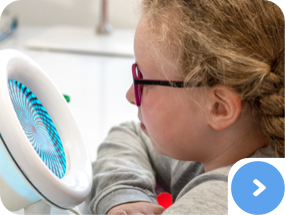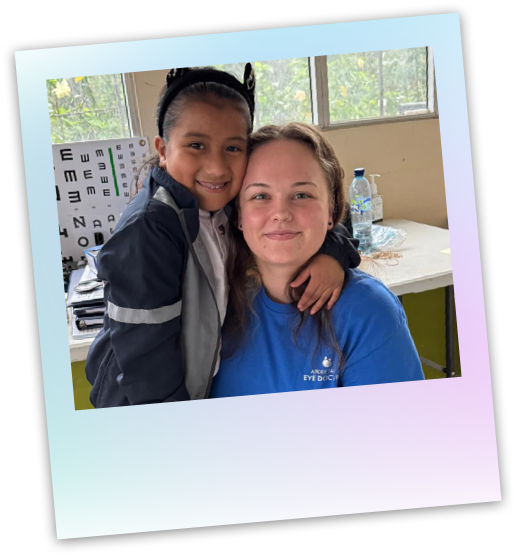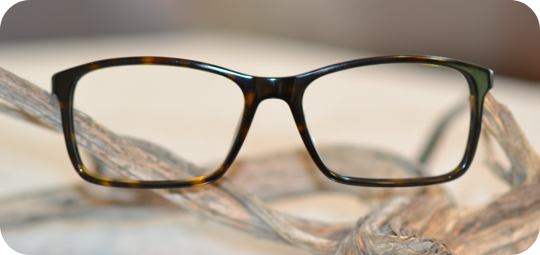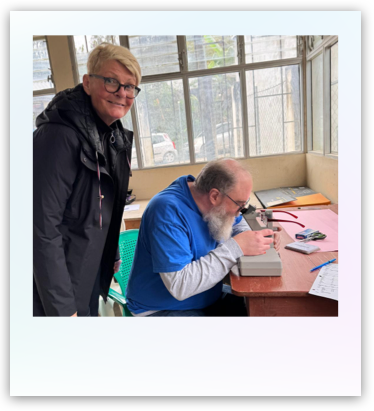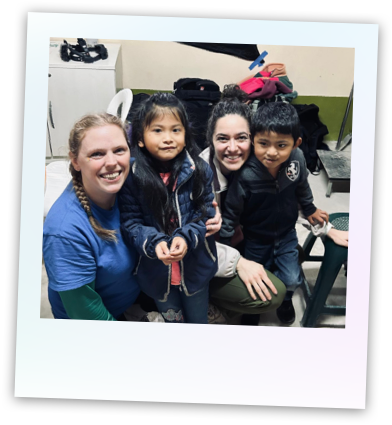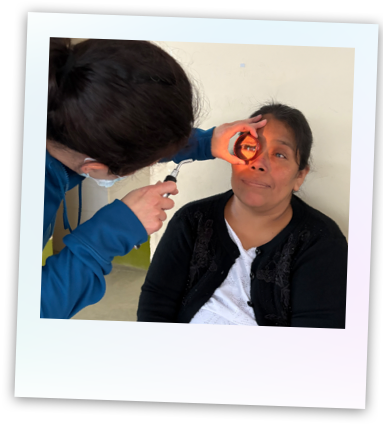It’s important to start your young children off right in every manner, including their eye health. But when should you begin having your child’s eyes examined? Beginning early is best to ensure they are successful at home, at school, and during after-school fun.
It’s crucial to schedule eye tests for children early because some early eye issues can impair eyesight for the rest of their life. Early detection of a problem can prevent a small issue from becoming more serious. Poor vision in early childhood can even result in speech and language delays.
Additionally, learning in school is heavily reliant on visual aids. Because of this, vision issues can play a significant role in learning difficulties.
Children’s Eye Exams
It has been estimated that only 14% of children under 6 years of age receive professional eye care. Many people are unaware of how soon they should take their children for their first eye exam.
Understanding different types of eye exams and the benefits they provide can help you in deciding when to bring your child in for their first exam.
Comprehensive Exams
A general practitioner or pediatrician’s quick eye exam is not the same as seeing an optometrist or ophthalmologist. Doctors who don’t specialize in vision care may overlook conditions that don’t have visible symptoms.
School vision screenings and eye exams are also insufficient for detecting these problems. Optometrists conduct far more extensive examinations. They have the knowledge and tools necessary to measure a variety of potential vision issues, such as:
- Lazy Eye
- Strabismus
- Eye Teamwork
- Myopia
Lazy Eye or Amblyopia
Amblyopia, commonly known as lazy eye, is reduced vision in one or both eyes due to a visual problem that reduces the eye’s communication with the brain. If it’s identified and treated early through comprehensive eye exams, it may resolve entirely.
If treatment from a comprehensive eye exam is not enough, vision therapy can help.
Strabismus
A child’s eye coordination and capacity for cooperation start to develop early during infancy. Strabismus is a condition where an eye is turned in or out and impairs this development.
Without treatment, a child’s strabismus is unlikely to go away and may worsen as they grow. Strabismus can cause double vision or amblyopia if left untreated.
Eye Teamwork
Eye Teamwork refers to the eye’s ability to operate together. A lack of coordination or a slight misalignment in your child’s eyes might result in symptoms including double vision, tiredness, headaches, and difficulty reading. Glasses and vision therapy are helpful tools to relieve these symptoms.
Myopia
Myopia, also known as nearsightedness, is a common refractive error. Myopic patients are unable to see distant objects clearly. Myopia is an elongation of the eyeball that makes it slightly longer from front to back than usual.
Light rays that form images that we see focus in front of rather than directly on the retina, causing distant objects to appear blurry and unclear.
The most frequent cause of myopia in children is excessive, or continued eye growth after normal eye growth should have stopped. This continued eye growth can thin the retina resulting in increased chances of retinal problems.
Comprehensive eye exams are useful for the early diagnosis of myopia, enabling you to get your child treatments that can slow its progression.
How Eye Exams Benefit Your Child
Even though they lack the visual abilities necessary to focus on subjects they’re learning, teachers and parents typically categorize children with undiagnosed vision issues as difficult, troublesome or slow learners. Children may be misdiagnosed with learning disabilities or behavioural issues like ADHD when really, it’s a vision issue.
Low vision in kids affects more than just their school performance. Vision can impact a child’s social life and extracurricular activities.
Early in life, we learn how facial expressions can cue intent and mood. Children with poor vision may miss important cues that can help them learn in early social interactions.
Many afterschool activities are not catered to kids with vision issues. Hand-eye coordination, balance, and confidence can all be negatively impacted if your child’s vision is not performing at its best.
Signs You Can See
Kids have no frame of reference for what their vision should be. Even if they’re old enough to communicate it to you, they may have no idea anything is even an issue, that’s why comprehensive eye exams are so important. Luckily there are some signals of vision issues you can see as their parent.
Infants
Infants with vision issues may get startled by objects appearing in their peripheral vision. They should be able to track toys moving across their field of vision. If your baby doesn’t follow things with their eyes, it may be a sign of a vision problem.
Preschool
Your preschooler may complain of headaches, hold books or tablets closer to their face, or try to sit closer to the TV.
Grade School
Kids in grade school may ask to move to the front of the classroom, lose interest in sports, and complain of blurry vision & headaches.
When Should You Schedule Your Child’s First Eye Exam?
We recommend that your children have eye exams at six months and then every year after that. Young eyes require special care and attention; routine eye exams are critical for your child’s visual health.
Once your child begins school, eye exams should be part of your back-to-school routine to ensure your child has a successful and happy year. Book your child’s eye exam today at Airdrie Family Eye Doctors.
